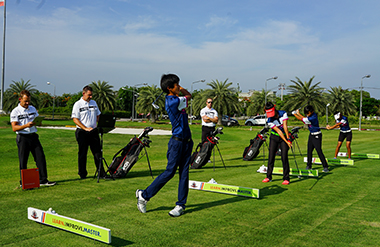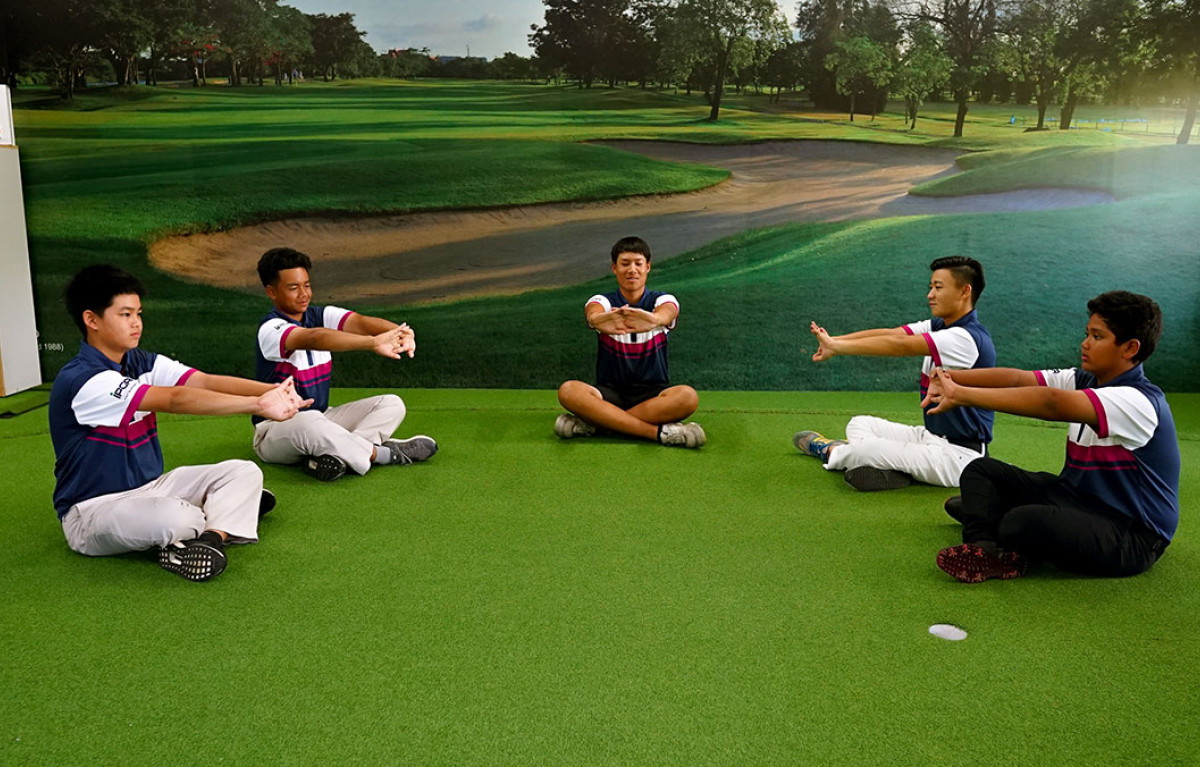스포츠와 마인드풀니스에 대한 관련 정보입니다.
PHYSIOLOGICAL CHANGES
멘탈을 정비하는 것은 제대로 구현된 진보적 마인드풀니스 훈련을 통해 최적화 될 수 있으며 최적의 멘탈 정비는 심리 사회적 준비를 더욱 향상 시킬 수 있다고 합니다. 마인드풀니스 기반의 개입은 경기 전 스트레스 감소와 관련된 경기 전 타액 코티솔 감소(John, Verma, & Khanna, 2011), 휴식 심박수 감소(Hewett, Ransdell, Gao, Petlichkoff, & Lukas, 20011), 통증 감소(Kingston, Chadwick, Meron, & Skinner, 2007; Zeiden, Gordon, Merchant, & Goolkasian, 2010) 등 수많은 생리적 효과를 나타냈습니다. . 이러한 생리 효과 스포츠 성능을 향상 시킬 수 있을 뿐만 아니라 선수의 번아웃의 위험을 줄일 수 있습니다. 마인드풀니스 훈련은 또한 운동 선수 집중을 개선 하고 불안감을
해소하는 데에 도움이 될 수 있기에 향상 된 운동 성과로 이어질 수 있습니다. (Bernier et al., 2009; Gardner & Moore, 2004).
잠재적인 스트레스에 대한 반응을 조절함으로써, 감지된 스트레스는 덜 느끼게 되고, 자신의 호흡을 보다 잘 느끼도록 훈련함으로써 마인드풀한 사람의 교감 신경계는 진정되어 휴식상태의 안정된 심박수를 감소시킵니다. (Hewett 등., 2011). 더 효율적인 심장 기능과 더 큰 지구력으로 인해 낮은 휴식 심박수는 신체 기능 향상과 피로감 개선으로 이어질 수 있습니다. 또한 마인드풀한 사람은 교감 신경계를 변화하는 능력을 느끼기도 합니다. (Hewett 등., 2011) 이는 자신에 대한 통제와 조절감의 증대를 가져올 수 있으며 이로써 불안감을 감소시킵니다.
MENTAL
마인드풀한 운동 선수는 내부 및 외부 자극의 인식 및 수용을 강화 하여 그들의 운동 퍼모먼스와 경기에 자신의 관심과 에너지를바칠 수 있습니다 (Moore, 2009).
마인드풀니스 또는 비판적이지 않는 자세로 현재의 순간을 알아채는 행위는 운동을 할 때 집중력을 개선시켜 운동 능력의 향상시키는데 도움을 줍니다. (Bernier, Thienot, Codron, & Fournier, 2009; Gardner & Moore, 2004).
마인드풀니스 즉, 판단과 비판 없이 현재 순간에 집중함 (Kabat-Zinn, 1994; Schmidt & Kupper, 2012; Ulmer, Stetson, & Salmon, 2010)은 운동 선수로 하여금 처한 상황이나 순간에 긍정적 또는 부정적인 시선과 반응을 하지 않으며 매 순간을 체험하고 그대로 받아들이도록 합니다. (Bernier et al., 2009; Gardner & Moore, 2004; Thompson,
Kaufman, De Petrillo, Glass, & Arnkoff, 2011).
또한 마인드풀니스는 선수가 개인적인 생각, 감정 및 기타 내부 자극을 인식 할 수 있도록 돕고 선수가 경기 결과에만 집중하는 대신 스포츠 관련 기술 및 게임 전략의 개인적인 가치 또는 과정에 집중할 수 있도록 만듭니다 (Pineau, Glass, And Kaufman, 2014).
현재 순간을 인지하고 그대로 수용함으로써 선수는 부정적인 생각에 덜 몰두하게되며 이로 인해 당면한 운동 과제에 대해 더 많은 에너지를 쏟고 집중하는 것이 가능합니다. (Pineau 등., 2014).
마인드풀니스는 개인의 관심을 현재의 순간에 집중하게 만들어 과거에 연연하거나 미래에 대해 걱정하지 않도록 합니다. 또한 원치 않는 생각을 바꾸거나 멈추는 대신, 마음 챙김은 운동 선수들에게 그러한 부정적 생각들을 가지고 놀도록 가르칩니다 (Bernier et al., 2009; Gardner & Moore, 2004). 과거 또는 미래의 경기에 대한 걱정은 경기에
최선을 다하는 것을 방해하기도 하고 스포츠 자체를 즐기는 것을 막을 수 있기 때문에 운동 선수들에게 이는 매우 중요한 일입니다.
References
- Bernier, M., Thienot, E., Codron, R., & Fournier, J. F. (2009). Mindfulness and acceptance approaches in sport performance. Journal of Clinical Sport Psychology, 4, 320 333.
- Gardner, F. L., & Moore, Z. E. (2004). A Mindfulness-Acceptance-Commitment-Based approach to athletic performance enhancement: Theoretical considerations. Behavior Therapy, 35, 707-723.
- Hewett, Z. L., Ransdell, L. B., Gao, Y., Petlichkoff, L. M., & Lucas, S. (2011). An examination of the effectiveness of an 8-week Bikram yoga program on mindfulness, perceived stress, and physical fitness. Journal of Exercise Science & Fitness, 9(2), 87-92.
- John, S., Verma, S. K., & Khanna, G. L. (2011). The effect of mindfulness meditation on HPA-Axis in pre-competition stress in sports performance of elite shooters, National Journal of Integrated Research in Medicine, 2(3), 15-21.
- Kabat-Zinn, J. (1994). Wherever you go, there you are: Mindfulness meditation in everyday life. New York: Hyperion.
- Kingston, J., Chadwick, D., Meron, C., & Skinner, T. C. 2007. A pilot randomized control trial investigating the effect of mindfulness practice on pain tolerance, psychological well-being, and physiological activity. Journal of PsychosomaticResearch, 62(3), 297-300.
- Lemyre, P.-N., Roberts, G. C., Stray-Gunderson, J. (2007). Motivation, overtraining, and burnout: Can self-determined motivation predict overtraining and burnout in elite athletes? European Journal of Sport Science, 7(2), 115-126.
- Mamassis, G., & Doganis, G. (2004). The effects of a mental training program on juniors’ pre-competitive anxiety, self-confidence, and tennis performance. Journal of Applied Sport Psychology, 16(2), 118-137.
- Moore, Z. E. (2009). Theoretical and empirical developments of the Mindfulness-Acceptance-Commitment (MAC) approach to performance enhancement. Journal of Clinical Sport Psychology, 4, 291-302.
- Pineau, T. R., Glass, C. R., & Kaufman, K. A. (2014). Mindfulness in sport performance. In A. le, C. T. Ngnoumen, & E. J. Langer (Eds.), The Wiley Blackwell handbook of mindfulness (Vol. II, pp. 1004-1033). Chichester, U.K.: John Wiley & Sons.
- Schmidt, S., & Kupper, Z. (2012). German contributions to mindfulness research, part 1: Context and concept of mindfulness. Mindfulness, 1-3.
- Stavrou, N. A., Jackson, S. A., Zervas, Y., & Karteroliotis, K. (2007). Flow experience and athletes' performance with reference to the orthogonal model of flow. Sport Psychologist, 21(4), 438-457.
- Thompson, R. W., Kaufman, K. A., De Petrillo, L. A., Glass, C. R., & Arnkoff, D. B. (2011). One-year follow-up of Mindful Sport Performance Enhancement (MSPE) with archers, golfers, and runners. Journal of Clinical Sport Psychology, 5, 99-116.
- Ulmer, C. S., Stetson, B. A., & Salmon, P. G. (2010). Mindfulness and acceptance are associated with exercise maintenance in YMCA exercisers. Behaviour Research and Therapy, 48(8), 805-809.
- Zeiden, F., Johnson, S. K., Diamond, B. J., David, Z., & Goolkasian, P. (2010). Mindfulness meditation improves cognition: Evidence of brief mental training. Consciousness and Cognition, 19, 597-605.




